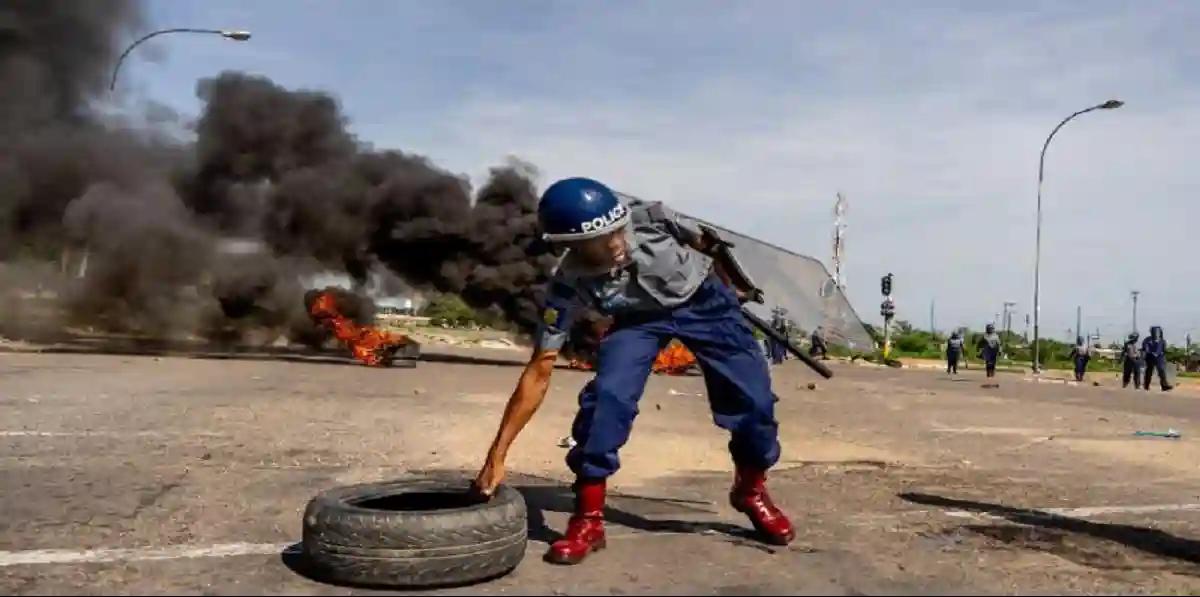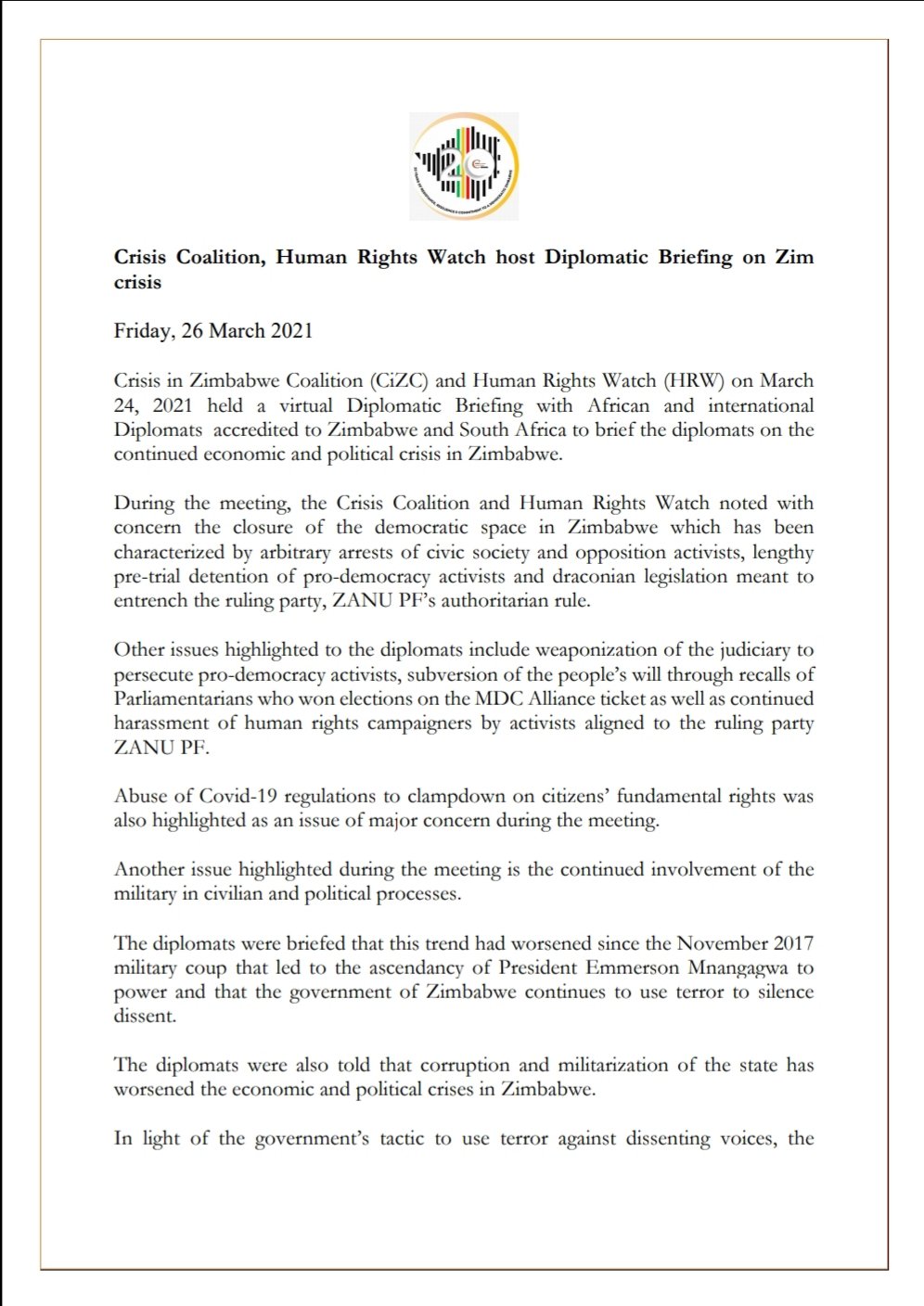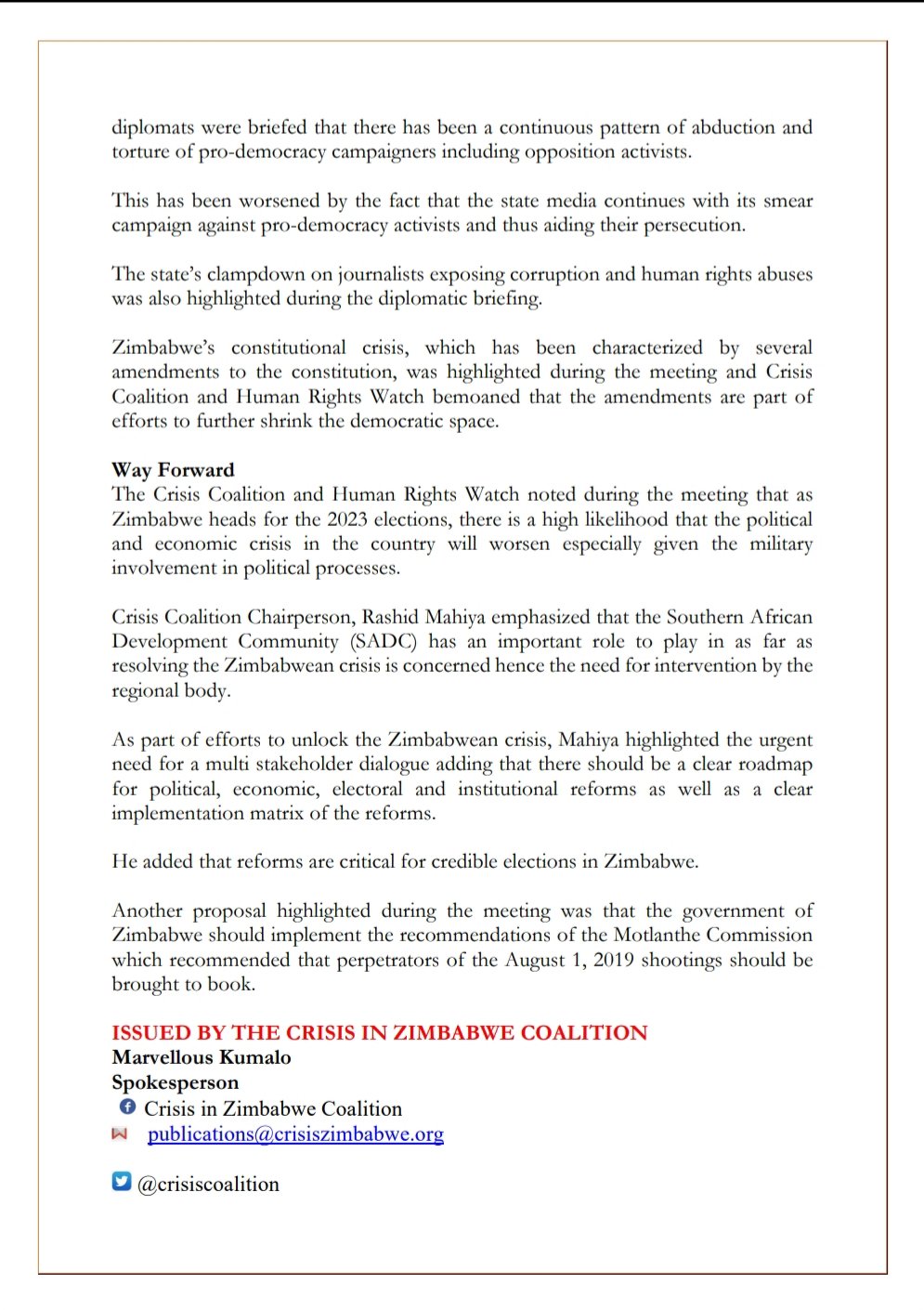The Crisis in Zimbabwe Coalition (CiZC) has projected that the political and economic crises in Zimbabwe are likely to worsen as the Southern African country approaches the 2023 elections. We present the coalition’s statement in full below.
Crisis in Zimbabwe Coalition (CiZC) and Human Rights Watch (I IRW) on March 24, 2021 held a virtual Diplomatic Briefing with African and international Diplomats accredited to Zimbabwe and South Africa to brief the diplomats on the continued economic and political crisis in Zimbabwe.
During the meeting, the Crisis Coalition and Human Rights Watch noted with concern the closure of the democratic space in Zimbabwe which has been characterized by arbitrary arrests of civic society and opposition activists, lengthy pre-trial detention of pro-democracy activists and draconian legislation meant to entrench the ruling party, ZANU PF’s authoritarian rule.
Other issues highlighted to the diplomats include weaponization of the judiciary to persecute pro-democracy activists, subversion of the people’s will through recalls of Parliamentarians who won elections on the MDC Alliance ticket as well as continued harassment of human rights campaigners by activists aligned to the ruling party ZANU PF.
Abuse of Covid-19 regulations to clampdown on citizens’ fundamental rights was also highlighted as an issue of major concern during the meeting.
Another issue highlighted during the meeting is the continued involvement of the military in civilian and political processes.
The diplomats were briefed that this trend had worsened since the November 2017 military coup that led to the ascendancy of President Emmerson Mnangagwa to power and that the government of Zimbabwe continues to use terror to silence dissent.The diplomats were also told that corruption and militarization of the state has worsened the economic and political crises in Zimbabwe.
In light of the government’s tactic to use terror against dissenting voices, the diplomats were briefed that there has been a continuous pattern of abduction and torture of pro-democracy campaigners including opposition activists.
This has been worsened by the fact that the state media continues with its smear campaign against pro-democracy activists and thus aiding their persecution.
The state’s clampdown on journalists exposing corruption and human rights abuses was also highlighted during the diplomatic briefing.
Zimbabwe’s constitutional crisis, which has been characterized by several amendments to the constitution, was highlighted during the meeting and Crisis Coalition and Human Rights Watch bemoaned that the amendments are part of efforts to further shrink the democratic space.
Way Forward The Crisis Coalition and Human Rights Watch noted during the meeting that as Zimbabwe heads for the 2023 elections, there is a high likelihood that the political and economic crisis in the country will worsen especially given the military involvement in political processes.
Crisis Coalition Chairperson, Rashid Mahiya emphasized that the Southern African Development Community (SADC) has an important role to play in as far as resolving the Zimbabwean crisis is concerned hence the need for intervention by the regional body.
As part of efforts to unlock the Zimbabwean crisis, Mahiya highlighted the urgent need for a multi-stakeholder dialogue adding that there should be a clear roadmap for political, economic, electoral and institutional reforms as well as a clear implementation matrix of the reforms.
I lc added that reforms arc critical for credible elections in Zimbabwe.Another proposal highlighted during the meeting was that the government of Zimbabwe should implement the recommendations of the Modanthe Commission which recommended that perpetrators of the August 1, 2019 shootings should be brought to book.
ISSUED BY THE CRISIS IN ZIMBABWE COALITION Marvellous Kumalo Spokesperson



